Decision No. 1929/Qd-Ttg Dated November 20, 2009 Of The Prime Minister
- 01/01/1970
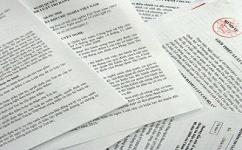
|
THE PRIME MINISTER |
SOCIALIST REPUBLIC OF VIET NAM |
|
No. 1929/QD-TTg |
Hanoi, November 20, 2009 |
DECISION
APPROVING ORIENTATIONS FOR DEVELOPMENT OF WATER SUPPLY IN VIETNAM'S URBAN CENTERS AND INDUSTRIAL PARKS UP TO 2025, AND A VISION TOWARDS 2050
THE PRIME MINISTER
Pursuant to the December 25, 2001 Law on Organization of the Government;
Pursuant to the Government's Decree No. 117/2007/ND-CP dated July 11, 2007, on the production, supply and consumption of clean water;
At the proposal of the Minister of Construction,
DECIDES:
Article 1.
To approve orientations for development of water supply in Vietnam's urban centers and industrial parks through 2025, and a vision towards 2025, with the following contents:
1. Viewpoints:
- Water supply is a production and business activity subject to the state control aiming to ensure the lawful rights and interests of water suppliers and water users, taking into consideration the provision of supports in water supply to the poor and regions meeting with exceptional difficulties.
- To sustainably develop water supply activities on the basis of tapping to the utmost all resources, meeting the demand for clean water; to supply quality water with good services in a stable and efficient manner.
- To exploit, produce and supply clean water regardless of administrative boundaries. To prioritize the exploitation of water sources to supply water for daily-life activities of communities.
- To encourage the rational, economical and safe use of clean water and to apply technologies of reusing water for different purposes.
- To apply scientific and technological advances in order to incrementally modernize the water supply industry, striving to reach the managerial and operational level of advanced countries in the world.
- To socialize the water supply industry and encourage organizations and individuals of various economic sectors to invest in the development of water supply. To raise the proportion of private investors in water supply.
2. Vision towards 2050:
To satisfy the water supply demand in all urban centers and industrial parks (including industrial parks, export-processing zones, hi-tech parks and economic zones) on the basis of supplying quality water with good services in a stable and efficient manner.
3. Objectives:
a/ General objectives:
To orientate the development of water supply in urban centers and industrial parks in service of national industrialization and modernization and, on that basis, work out specific action plans and programs aiming at supplying quality water with good services in a stable and efficient manner to meet water demands in each period.
b/ Specific objectives and criteria up to 2015:
- The coverage of clean water supply services will reach 90% in urban centers of grade III or higher, with a water supply norm of 120 liters/ person/day; 70% in grade-IV urban centers, with a water supply norm of 100 liters/person/day; and 50% in grade-V urban centers. Water of a quality up to prescribed standards will be supplied from concentrated water supply systems.
- The clean water wastage will be below 25% in urban centers of grade IV or higher with new water supply systems and below 30% in grade-V urban centers with existing water supply systems.
- Water supply services will be stable and uninterrupted. In urban centers of grade III or higher, water will be continuously supplied round the clock. In grade-IV and -V urban centers, the time of water supply will be in line with practical demand and conditions.
- Industrial parks will be supplied with adequate water of appropriate water pressure and flow.
c/ Specific objectives and targets up to 2020:
- The coverage of clean water supply services will reach 90% in urban centers of grade IV or higher, with a water supply norm of 120 liters/person/day and 70% in grade-V urban centers, with a water supply norm of 100 liters/person/day. Water of quality up to prescribed standards will be supplied from concentrated water supply systems.
- The clean water wastage will be below 18% in urban centers of grade IV or higher and below 25% in grade-V urban centers. Water will be uninterruptedly supplied round the clock in urban centers of grade IV or higher.
d/ Specific objectives and targets up to 2025:
- The coverage of clean water supply services in urban centers will reach 100%, with an average water supply norm of 120 liters/person/day and of quality up to prescribed standards.
- The clean water wastage in urban centers will be below 15%.
- Water will be stably and continuously supplied round the clock and the water pressure in the whole system will reach prescribed standards.
Article 2.
Implementation solutions
1. Water sources:
- To prioritize the exploitation of surface water, rationally exploit and use ground water and reduce the exploitation output of ground water in big urban centers such as Hanoi and Ho Chi Minh City, especially cities with limited ground water reserves.
- To survey, explore, evaluate and create a database on water sources. To evaluate and upgrade ground water reserves for exploitation. To evaluate the reserves and quality of surface water, including water from rivers, reservoirs and dams nationwide. To formulate a plan on the multi-purpose use of reservoirs and dams, prioritizing the exploitation of water for daily-life activities.
- To accelerate the planning of exploitation, use and protection of water resources.
- To enhance the management, supervision and protection of water sources and set up water management committees in charge of different river basins. To accelerate the protection of overheads and strictly supervise the discharge of wastewater into water sources.
2. Investment in, development and management of, water supply systems:
- To further implement regional, provincial and urban water supply plannings; to closely combine the supply of water in urban centers and surrounding rural areas. To prioritize investment in the construction of regional water supply facilities.
- To encourage all economic sectors to invest in water supply development.
- To synchronously construct water treatment plants and water pipeline networks that will operate at full design capacity.
- To prioritize clean water wastage prevention projects.
- To examine and evaluate the quality of, upgrade and invest in expanding water pipeline networks in order to meet the water demand, ensure that they operate at full design capacity and reduce water wastage.
- To implement the Regulation on the assurance of safety in water supply.
3. Mechanisms and policies on water supply activities:
- To mobilize capital from domestic and overseas organizations and individuals for investment in the construction of water supply systems.
- To set up a water supply rotary credit fund in order to raise funds for the provision of support for, and investment in, water supply projects in small urban centers and concentrated residential quarters.
- Investment projects on construction of water supply systems will be entitled to incentives and state supports according to law.
- To calculate water prices in a proper manner so as to ensure the recovery of in vestment capital of projects and profitability to attract investors. To formulate a water price increase roadmap in order to meet above requirements.
- To comprehensively revise and adjust the system of standards and technical regulations applicable to the water industry.
4. Research into and development of water supply technology, supplies and equipment:
- To select modern, high-automation and energy-saving technologies and equipment for newly built plants.
- To step by step renovate, upgrade and replace equipment of existing plants in order to reduce water wastage, energy, chemicals and operation costs.
- To study and organize the domestic manufacture of high-quality supplies and equipment so that by 2025, domestic manufacturers will be able to provide supplies and equipment of all kinds for the water sector. To encourage the use of home-made high-quality supplies and equipment in newly built facilities.
- To prioritize the research into and manufacture of water- and energy-saving equipment.
5. Human resource training and development:
- To qualitatively and quantitatively improve the training of water supply and drainage engineers at training establishments in order to satisfy the development requirements of the water supply sector.
- To consolidate and expand job-training schools and improve the quality of training of workers of the water sector to meet the requirements for management, operation and maintenance of water supply systems.
- To formulate mechanisms for, and create a favorable working environment in, the water supply sector in order to attract capable scientists for technology research and development and application of world scientific and technological advances.
- To train specialized personnel from the central to local level in water resource planning and management to so as to improve their qualifications.
6. Management of water supply:
- To perform the unified state management of water supply from the central to local level.
- In each province or centrally run city, to set up a specialized water supply unit which will be responsible before the local administration for water supply in urban centers.
- To reorganize and raise the operational efficiency of state-owned water supply enterprises according to a roadmap and practical conditions in each locality.
- To consolidate and develop training centers of the water sector in the north, central Vietnam and the south.
- To study and set up a Water Industry Research Institute and laboratories and observation stations in the north, central Vietnam and the south so as to assess the quality and reserves of water sources as well as the quality of treated water.
7. Education and communications:
- To incorporate basic knowledge on water sources, water supply systems and environmental protection into general education curricula; to organize surveys, exploration and evaluation of water sources and water supply systems for students.
- To step up communication about the role of clean water in human life and responsibilities of organizations and individuals toward water supply systems.
- To publicize information on state policies on water supply and water sources and regulations on the management of water supply systems and protection of water sources.
8. International cooperation:
To enhance scientific and technological exchange and cooperation with international and non-governmental organizations aiming to:
- Exchange and learn experience in water supply.
- Invest in construction of water supply systems.
- Receive technical assistance, technology transfer and training supports.
Article 3.
Organization of implementation
1. The Ministry of Construction shall:
- Assume the prime responsibility for, and coordinate with concerned ministries and branches and provincial-level People's Committees in, implementing the orientations for water supply development in urban centers and industrial parks through 2025, and a vision towards 2050; elaborate plans and programs for the short term (up to 2015) and long-term (up to 2025) periods.
- Sum up and elaborate plans on investment in the development of water supply in urban centers in the periods up to 2015 and 2025.
- Consolidate and develop training centers of the water industry.
- Review and assess the implementation of the Government's Decree No. 117/2007/ND-CP dated July 11, 2007, on the production, supply and consumption of clean water and legal documents on water supply and drainage.
- Revise the system of standards and technical regulations applicable to water supply so as to ensure their consistency; promulgate regulations on, and guide the determination of, funds for planning, consultancy and appraisal of water supply projects and expenses for management and operation of water supply systems.
- Assume the prime responsibility for, and coordinate with the Ministry of Natural Resources and Environment in, building a database on water supply and drainage in urban centers.
2. Concerned ministries and branches shall, based on their functions and tasks assigned by the Government, elaborate action plans and programs for the implementation of orientations for water supply development in urban centers and industrial parks through 2015, and a vision towards 2050, and coordinate with the Ministry of Construction in, implementing these programs.
3. Provincial-level People's Committees shall:
- Organize the implementation of the Government's Decree No. 117/2007/ND-CP dated July 11, 2007, on production, supply and consumption of clean water.
- Carry out the reorganization and raising of operational efficiency of state-owned water supply enterprises according to a roadmap in conformity with local practical conditions.
- Consolidate the organization of water supply companies and the management of water sources regarding the exploitation and protection of water sources in their localities.
- Organize the implementation of the Regulation on assurance of safety in water supply.
- Coordinate with other localities in elaborating plans on exploitation and protection of water sources in river basins.
- Encourage domestic and foreign enterprises and organizations and individuals to invest in, and operate water supply systems in urban centers.
- Elaborate water supply plans and plannings in conformity with the development of urban centers and supervise the implementation of these plans and plannings.
- Conduct information work so as to raise the awareness of organizations and individuals about their role and responsibilities in the protection and exploitation of water sources as well as the hygienic and economical use of water.
Article 4.
This Decision takes effect on the date of its signing.
Ministers, heads of ministerial-level agencies, heads of government-attached agencies, chairpersons of provincial-level People's Committees and concerned organizations and individuals shall implement this Decision.
|
|
FOR THE PRIME MINISTER DEPUTY PRIME MINISTER (Signed and sealed) Hoang Trung Hai (This translation is for reference only) |
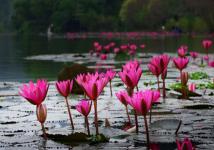
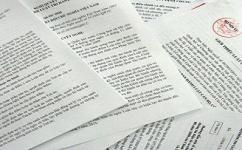
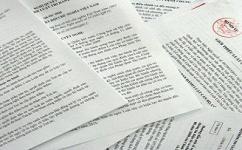

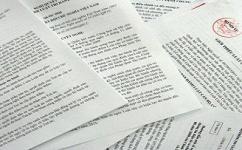
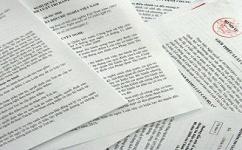


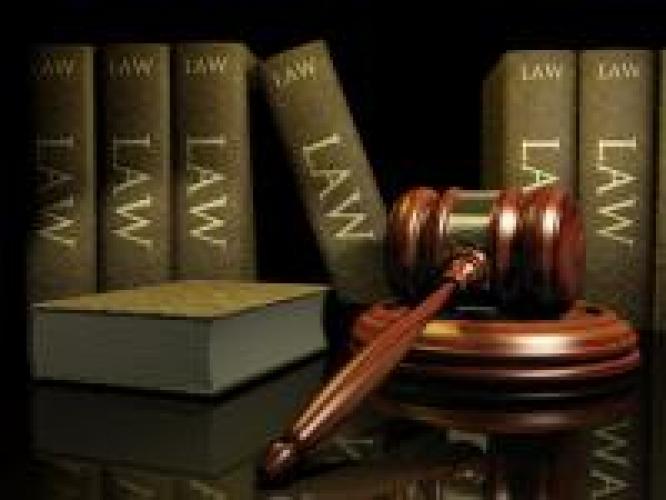
0 comment